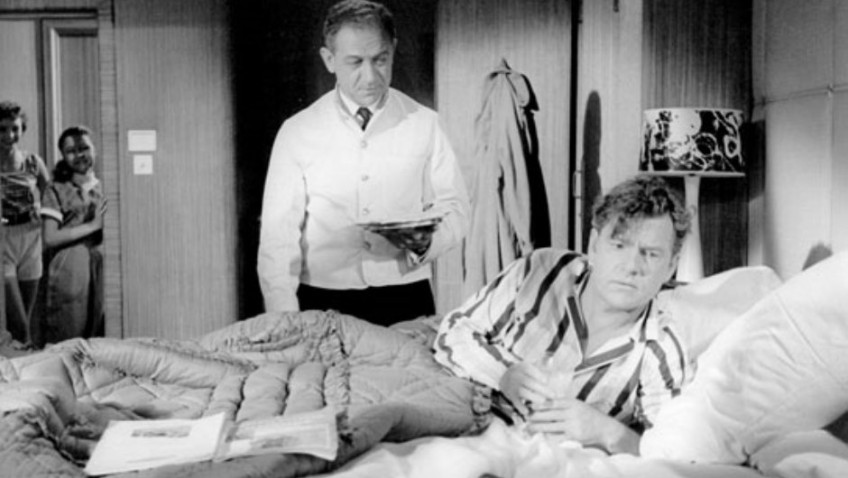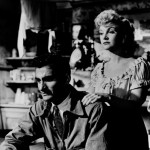Robert Tanitch reviews the latest DVDs
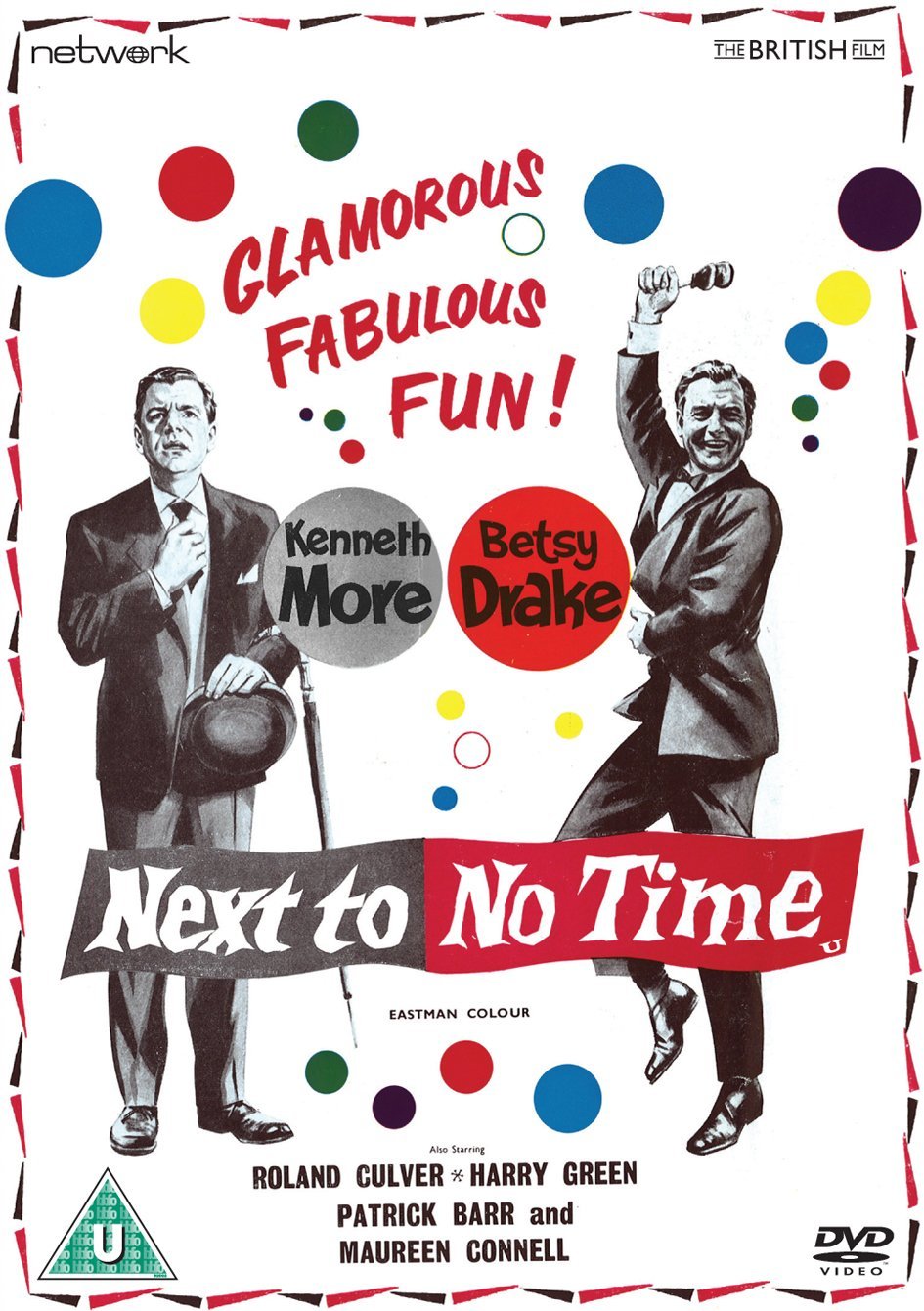 NEXT TO NO TIME (Network). Time stops each day for an hour when you cross the Atlantic. Director Henry Cornelius and Kenneth More had a huge success with Genevieve, the ultimate British road movie in 1953. It made More a star.
NEXT TO NO TIME (Network). Time stops each day for an hour when you cross the Atlantic. Director Henry Cornelius and Kenneth More had a huge success with Genevieve, the ultimate British road movie in 1953. It made More a star.
This 1958 comedy, set aboard the Queen Elizabeth, is not in the same league. More (personable as ever) plays a planning engineer, who is brainy but shy, and has to complete a contract before the ship reaches New York. His character and confidence changes according to the time.
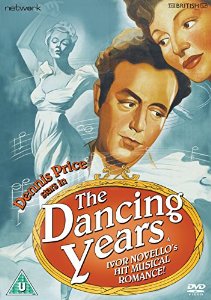 THE DANCING YEARS (Network). Ivor Novello’s operetta was a big success on stage, running right through World War 2 and was seen by 6 million theatregoers in search of escapism. Ivor was 46 in 1939 pretending to be a struggling 23-year-old Austrian composer who hopes (wishful thinking) to join the ranks of Mozart, Strauss and Offenbach.
THE DANCING YEARS (Network). Ivor Novello’s operetta was a big success on stage, running right through World War 2 and was seen by 6 million theatregoers in search of escapism. Ivor was 46 in 1939 pretending to be a struggling 23-year-old Austrian composer who hopes (wishful thinking) to join the ranks of Mozart, Strauss and Offenbach.
There are two women in his life: a young girl (Patricia Dainton) and a prima donna (Gisele Preville). Whom will he end up with? No cliché is left unturned. The wartime context (“Sometime we’ll wake up from this evil dream and smile again”) has wisely been ditched in the film. Denis Price plays the composer.
BRITISH COMEDIES of 1930s Volume 2 (Network) offers two 80-year-old films.
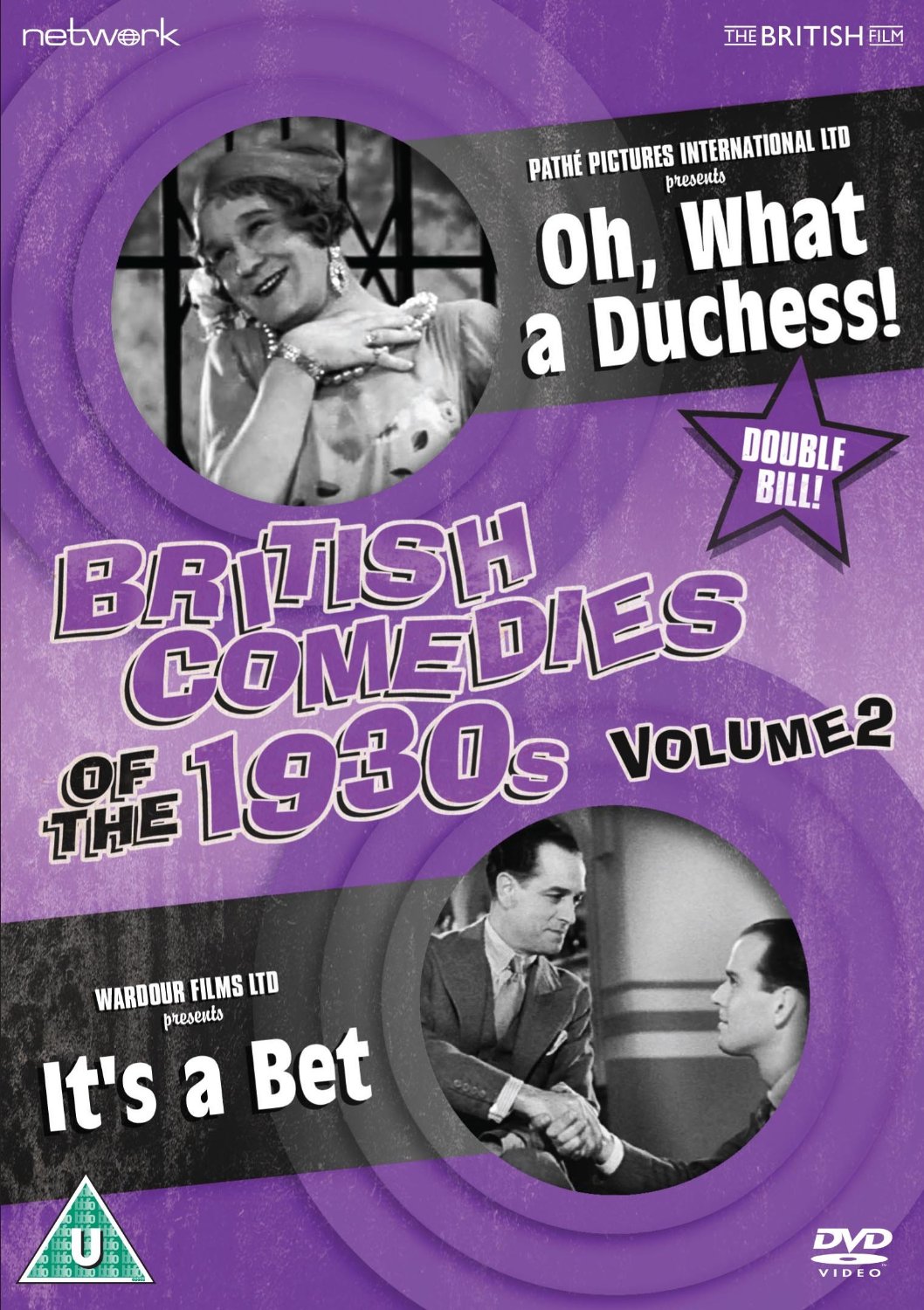 OH, WHAT A DUCHESS! stars George Lacy who plays an inept stage manager, who has ambitions to be an actor. Lacy (1904-1989) was widely thought to be the greatest pantomime dame of his generation. Connoisseurs said he was the best Mother Goose. This film is a very cheap 1933 vehicle but it’s a rare chance to see Lacy when he was a very young song and dance man and female impersonator.
OH, WHAT A DUCHESS! stars George Lacy who plays an inept stage manager, who has ambitions to be an actor. Lacy (1904-1989) was widely thought to be the greatest pantomime dame of his generation. Connoisseurs said he was the best Mother Goose. This film is a very cheap 1933 vehicle but it’s a rare chance to see Lacy when he was a very young song and dance man and female impersonator.
IT”S A BET. A sacked newspaper reporter (Gene Gerrard) is offered by a friend and rival-in-love (Allen Vincent) £1,000 if he can disappear for a month and not be caught. He goes on the run.
This gentle 1935 comedy, which takes as its model the American screwball comedies of the 1930s, has its moments and might have had even more moments if Vincent had been playing the leading role. But Gerrard was the star name and got the star role.

